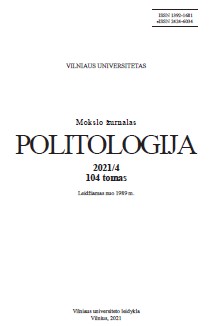Fyodor Dostoevsky’s “I am more than all” and Its Implications for the Political
Fyodor Dostoevsky’s “I am more than all” and Its Implications for the Political
Author(s): Andrius BielskisSubject(s): Ethics / Practical Philosophy, Political Philosophy, Russian Literature, 19th Century Philosophy, Criminology, Studies in violence and power
Published by: Vilniaus Universiteto Leidykla
Keywords: Dostoevsky; ethics of redemption; the political; Levinas; Freud; Schmitt; Aristotle; liberalism; war (in Ukraine);
Summary/Abstract: The paper examines Fyodor Dostoevsky’s ethical views – especially as exemplified in the dictum “each of us is guilty of everything against all, and I am more than all” – in light of their political implications. It focuses on two related issues. First, Emmanuel Levinas’s philosophical interpretation of Dostoevsky’s “I am more than the others” is contrasted with its interpretation by Sigmund Freud, who famously argued that Dostoevsky’s fixation on guilt was the consequence of his neurotic intention to murder his father. Freud’s claim has been refuted by Dostoevsky’s bibliographers. To understand the meaning of “I am more than all,” its semantic-narrative context in The Brothers Karamazov is therefore discussed. Second, the paper then examines the political implications of Dostoevsky’s ethics of redemption. Given that there are at least three traditions of theorizing the political – classical-Aristotelian, Schmittian, and liberal – the paper examines how Dostoevsky’s ethics of redemption can be positioned vis-à-vis these conceptualizations and which of them it can enrich the most.
Journal: Politologija
- Issue Year: 2021
- Issue No: 4(104)
- Page Range: 89-116
- Page Count: 28
- Language: English

